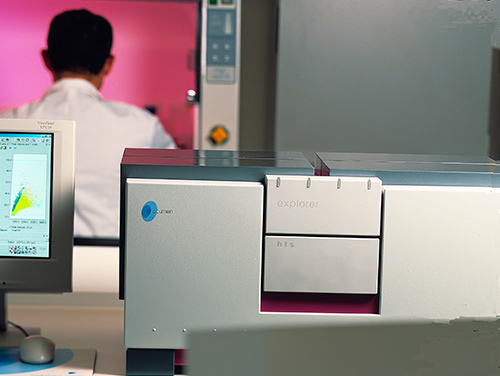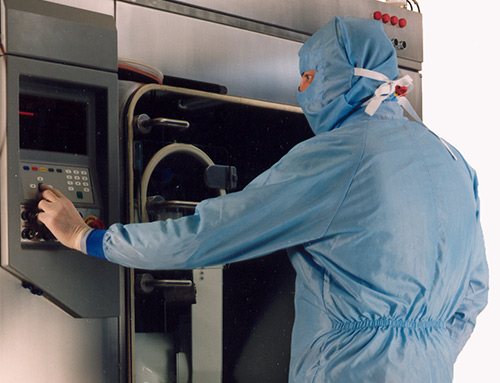When it comes to combatting intractable conditions like lymphoma, leukemia, and many genetic diseases, autologous cell therapy is looking set to be the go-to solution. Yet while clinicians maintain their excitement for this treatment, manufacturers of autologous cell therapies are knuckling down to overcome several distinct problems associated with scaling early clinical work to a viable commercial manufacturing operation. Autologous cell therapy remains desirable due to its sheer effectiveness and flexibility. Since the therapeutic cells are derived directly from the patient, this form of cell therapy also avoids systemic immunological reactions and bio-incompatibility complications during cell transplant—adding to its clinical appeal over allogeneic cell therapies.
However, although the power and versatility that cell therapies provide are apparent to all, a central limiting factor is that they also happen to be extremely expensive to produce due to the complex manufacturing process. This has made cost-efficient scale-out highly challenging in the majority of cases. Thankfully, innovations in intelligent manufacturing, engineering technology, and physical science may hold the key to solving this problem.

Small footprint, easy to use automation may learn lessons from existing biolab equipment. [The Technology Partnership]
Circular Challenges
Cell therapy manufacturers have substantially more difficulties than those developing more “standard” biopharmaceuticals. Autologous cell therapy supply chains are circular by nature: cells are harvested from the patient, transported to a lab or clinical setting where the “product” is developed, and returned to the patient as quickly as possible. With so many steps, this makes it susceptible to multiple sources of error. Continuous quality checks are therefore essential for making sure that patients receive the right cells in order to avoid graft versus host disease, as well as ensuring that the sensitive cells are healthy, safe, and effective come the point of delivery.
Errors within this circular supply chain can result in cells undergoing phenotypic changes due to fluctuating environmental conditions. Logistical errors like poor transport procedures or record keeping can lead to patients receiving the wrong batch of cells. Ineffective cell extraction in the early stages or in-process failures can result in loss of product, forcing patients to endure a second, invasive harvesting procedure, which in some cases could be impossible. Finally, manufacturers are required to demonstrate comparability between cell therapy products and manufacturing sites.
These challenges can makes commercialization of autologous cell therapy an insurmountable hurdle for many. A poor understanding of the product mechanism of action; poorly defined parameters capable of affecting quality, safety, or efficacy; or limited awareness of how external changes affect the manufacturing process as a whole will introduce a large and unnecessary degree of variation that needs to be accounted for. To successfully and efficiently scale-out autologous cell therapy, organizations need to have well-defined strategies in place to manage the logistics from harvest to transplant, with robust protocols guaranteeing product stability and viability throughout.
Automation, Logistics and Quality Assurance
In order to keep the circular supply chain moving and error-free, the best additions a company can make to its workflow are automated elements and regulatory compliant manufacturing technologies (“GMP in-a box” systems for example). These have the capacity to greatly minimize the degree of variation within a system. An automated system should be closed to promote patient safety, and integrated to simplify the existing workflow. They also need to be easy to operate and maintain, without the need for operators to undertake complex and error prone tasks such as routing tubing prior to use, helping companies achieve an appropriate cost of goods sold (COGS).
Such systems also need to account for the logistics involved with the transportation of these highly valuable and sensitive products. The World Health Organization (WHO) has already detailed how the distribution of pharmaceutical products needs to be conducted in accordance with GMP, good storage practice (GSP), and good distribution practice (GDP). With this in mind, companies looking to scale-out are obliged to make use of technology such as temperature monitors during shipping and accompanying contingency plans for when the temperature deviates beyond acceptable levels.
As each batch in an autologous cell therapy operation corresponds to a single patient, accurate record-keeping to promote full product traceability is vital for a successful workflow and subsequent treatment. It should be apparent that paper-based records would quickly become unmanageable at a rapid rate during any scale-out operation. Instead, companies will require automated data capture and monitoring tools in order to generate and maintain detailed records at every point in the manufacturing and treatment process.
Technological advancements are clearly the driving force behind a successful scale-out, and as such, industry is beginning to implement the principles of quality by design (QbD) and process analytical technology (PAT) into their work. Developments in engineering and the physical sciences are beginning to help maintain continuous quality assurance (QA) throughout the autologous cell therapy manufacturing process. In-line monitoring, automated sample and batch release records and even robust transport strategies can provide confidence that batches maintain integrity and GMP-compliance. QA protocols go a long way to eliminating any potential weak links in the cell therapy supply and manufacturing chain.
Crossing the Commercialization Gap
Autologous cell therapy offers clear benefits to patients that will outweigh scale-out concerns in the minds of innovative companies. These challenges are not in the core science, but rather in the complex manufacturing processes currently used and the associated costs. We now have the technological proficiency to tackle these through the implementation of automated, closed and integrated systems. These minimize excessive manual manipulation, promote consistency, and reduce costs through streamlined autologous cell therapy scaling options. The construction of intelligent manufacturing strategies can bridge the gap to commercialization with the aid of automated systems and robust strategies and protocols. This can aid those transitioning autologous cell therapies to larger scales in order to progress the field of regenerative medicine from the lab to the clinic for the benefit of patients worldwide.
Edwin Stone, Ph.D. ([email protected]), Technology and Product Development, The Technology Partnership.



